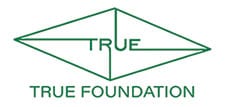Through the lens of her camera, Dorothea Lange documented American life with riveting, intimate photographs that portrayed some of the most powerful moments of the 20th century. Lange was driven by the belief that seeing the effects of injustice could provoke reform and, just perhaps, change the world. From documenting the plight of Dust Bowl migrants during the Great Depression to illuminating the grim conditions of incarcerated Japanese Americans during World War II, Lange’s photographs demonstrate how empathy and compassion—focused through art—can sway minds and prompt change throughout this nation’s history. See how Lange’s work continues to resonate with millions and inspire new generations of artist-activists, illustrating the power of photography as a form of social activism.
Dorothea Lange: Politics of Seeing is organized by the Oakland Museum of California. The exhibition is supported in part by the Oakland Museum Women’s Board and the Henry Luce Foundation. Funding for this exhibition and related programs is provided in part by an Anonymous Donor, Susan J. Roeder, Oklahoma Humanities (OH) and the National Endowment for the Humanities (NEH). Any views, findings, conclusions or recommendations expressed do not necessarily reflect those of OH or NEH.
Picture this Website
“Several of Dorothea Lange’s photographs can be examined more closely on the Oakland Museum of California’s Picture This: California Perspectives on History website—underlined title in blue text are direct links to specific images. The Picture This website provides historical context for important eras in California history, and Dorothea Lange’s photographs are featured in multiple sections, including the “Depression Era: 1930s” and “World War II Homefront Era: 1940s.”” Click Here.
Dorothea Lange Archive
“Dorothea Lange: Politics of Seeing and these teacher resources draw heavily from the Oakland Museum of California’s Dorothea Lange Collection, a rich assemblage of primary sources. This personal archive was a gift from the artist. It includes approximately 25,000 negatives, 6,000 vintage prints, field notes, and personal memorabilia. Pieces from this archive are also featured in both our permanent Art and History Galleries. To view more images from the archive, visit the Dorothea Lange tab on our OMCA Collections website.” Click Here.
























